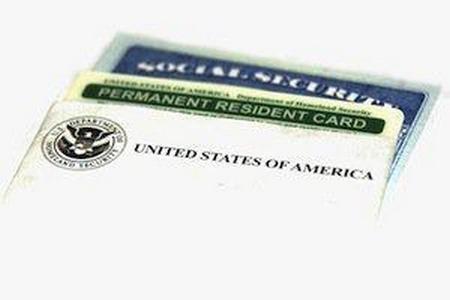Conditional Green Cards: Moving Up in the World
 It is often believed that if a foreign national marries a U.S. citizen, or if he or she establishes a business in the country, that any green card application he or she makes will automatically be approved with no strings. This is not the case, nor has it been the case in recent years, for everyone.
It is often believed that if a foreign national marries a U.S. citizen, or if he or she establishes a business in the country, that any green card application he or she makes will automatically be approved with no strings. This is not the case, nor has it been the case in recent years, for everyone.
While some marriage-based green cards are approved with little difficulty, some are only granted with conditions attached. If you are faced with this situation, it is imperative to know what a conditional green card is, and what it is not.
The Initial Conditional Card
Generally, a card granting lawful permanent resident (LPR) status, or a “green card,” is granted with conditions when an immigration official suspects that a marriage (or a business, in the rare case of entrepreneurs) is a sham.
Between 2007 and 2009, over 600 marriages were found to be fraudulent, which is a significant increase from past figures. In response, United States Citizenship and Immigration Services (USCIS) has turned up the proverbial heat, and a conditional green card is a way to do it. It allows a sort of testing period to see if a marriage is truthful and legal.
For example, consider a situation in which a U.S. citizen legally marries a national of Mexico. This is a common scenario for foreign nationals to obtain a green card, which entitles them to live and work in the United States. Many such marriages pass muster immediately. For those that do not, the foreign national may be granted a green card on a ‘conditional’ basis. Hence, a green card will be granted, with all the benefits and responsibilities of an unconditional card; but, at the end of two years, the person must be in a position to apply to remove the conditions and pass the test. During the two years in the meantime, the couple will be monitored, though not invasively, to help prove their marriage is genuine. If fraud is discovered at any time, the foreign national can be detained or deported.
Removing the Conditions
When the two-year period is nearing its end, the foreign national spouse must be able to meet certain requirements in order to apply for the conditions on his or her LPR status to be removed. The spouse must meet one of four criteria:
- Still be married to the U.S. citizen to whom the spouse was married at the time of the original application;
- No longer being married due to divorce or annulment, but entered into the marriage in good faith;
- Widowed or made a widower, while having entered into the marriage in good faith; and/or
- Entered into the marriage in good faith, but were subjected to spousal abuse and/or battering.
Normally, you and your spouse must apply together to remove the conditions, though this requirement can be waived with a showing of spousal abuse or being widowed. If you are still married and no abuse has occurred, you may both submit a Form I-751, a Petition to Remove Conditions on Permanent Residence Based on Marriage. This must be done at least 90 days before the expiration of your two-year conditional residence. If it is not done, you may be placed into removal proceedings or detained by Immigration and Customs Enforcement (ICE), depending on how big a risk you are assumed to be.
Seek Professional Assistance
Immigration law is notoriously complex, and having a professional on your side can make all the difference between keeping your spouse with you and having to face proceedings. The skilled Chicagoland immigration attorneys at Mevorah & Giglio Law Offices are well versed in these technicalities, and will work hard to help you. Contact us today for a free consultation
 English,
English,
 Spanish,
Spanish,
 Polish,
Polish,
 Urdu
Urdu













 Make a Payment
Make a Payment



